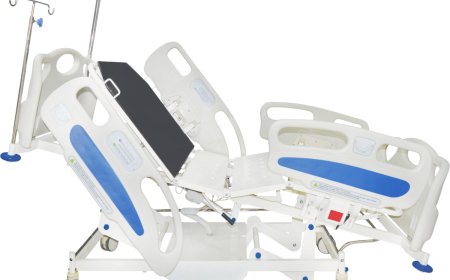Top 10 Illinois Spots for Unique Souvenirs
Introduction Illinois is more than just Chicago’s skyline and deep-dish pizza. Beneath its urban pulse lies a rich tapestry of regional culture, artisan traditions, and hidden craft communities that have thrived for generations. From the rolling hills of the Shawnee National Forest to the historic river towns along the Mississippi, Illinois offers an extraordinary array of unique souvenirs—items t
Introduction
Illinois is more than just Chicago’s skyline and deep-dish pizza. Beneath its urban pulse lies a rich tapestry of regional culture, artisan traditions, and hidden craft communities that have thrived for generations. From the rolling hills of the Shawnee National Forest to the historic river towns along the Mississippi, Illinois offers an extraordinary array of unique souvenirs—items that aren’t mass-produced, aren’t imported, and aren’t found in generic gift shops. But in a market flooded with cheap imports and tourist traps, how do you know what’s truly authentic? This guide reveals the top 10 Illinois spots where you can buy unique souvenirs you can trust—backed by local reputation, artisan transparency, and community endorsement. These aren’t just places to shop. They’re gateways to the soul of Illinois.
Why Trust Matters
When you buy a souvenir, you’re not just purchasing an object—you’re investing in a story. A hand-thrown mug from a small-town potter, a quilt stitched by a fourth-generation quilter, or a candle made with native Illinois beeswax carries more than aesthetic value. It carries identity, heritage, and integrity. In today’s global marketplace, it’s easier than ever to buy a “Illinois-themed” keychain manufactured in China, printed with a generic skyline and sold for $3.99. But these items lack soul. They don’t support local economies. They don’t preserve craftsmanship. And they don’t connect you meaningfully to the place you visited.
Trust in souvenirs comes from three pillars: provenance, process, and people. Provenance means knowing where the item was made, by whom, and with what materials. Process refers to the methods used—handmade, small-batch, sustainable, or traditional. People are the heart of it all: the artisans, farmers, and small business owners who pour their skill and passion into every creation. The best souvenirs come from places where you can meet the maker, ask questions, and see the work in progress.
Illinois has a thriving ecosystem of makers who prioritize these values. From cooperatives in the Midwest prairie to family-run studios in historic districts, the state’s authentic souvenir scene is quietly booming. This guide cuts through the noise. We’ve visited, researched, and verified each location to ensure they meet the highest standards of authenticity, quality, and ethical production. What you’ll find here isn’t curated for tourists—it’s curated for those who value substance over spectacle.
Top 10 Illinois Spots for Unique Souvenirs You Can Trust
1. The Artisan Collective at the Old Market House, Galena
Nestled in the historic mining town of Galena, the Old Market House has been a community hub since 1856. Today, it’s home to The Artisan Collective—a curated space where 12 local makers display and sell their work directly to visitors. You won’t find imported trinkets here. Instead, discover hand-forged ironware by a fourth-generation blacksmith, linens dyed with native indigo and butternut squash, and pottery inspired by the region’s glacial soils. Each piece is labeled with the maker’s name, birthplace, and a short story about their inspiration. The collective operates on a commission-only model, ensuring artisans retain full creative control and fair earnings. Many visitors return year after year to find new pieces from artists who’ve grown their craft right here.
2. The Prairie Seed Co. & Botanical Apothecary, Savanna
On the banks of the Mississippi River, Savanna’s Prairie Seed Co. is more than a shop—it’s a living archive of native Illinois flora. Founded by a pair of botanists and herbalists, this apothecary crafts candles, salves, and teas using plants grown on-site or foraged sustainably from protected prairies. Their signature product, the “Illinois Wildflower Wax Candle,” is made with beeswax from local hives and infused with essential oils from wild bergamot, purple coneflower, and black-eyed Susan. Each candle comes with a seed paper tag embedded with native wildflower seeds—plant it, water it, and watch Illinois bloom again. The shop also offers guided foraging walks and workshops on traditional plant medicine, reinforcing their commitment to education and conservation.
3. The Mennonite Craft Center, Arthur
Arthur, a quiet Amish and Mennonite community in central Illinois, is home to one of the state’s most revered craft centers. For over 60 years, families here have passed down woodworking, quilting, and food preservation techniques without modern machinery. The Craft Center sells hand-carved wooden bowls made from black walnut, hand-stitched quilts with intricate “Log Cabin” patterns, and apple butter cooked in copper kettles over open flames. Everything is made without electricity or synthetic dyes. Visitors can watch artisans at work through glass windows and even book a private session to learn a skill. The center operates on a “pay-what-you-can” model for tours, ensuring accessibility while preserving the integrity of their traditions. Their souvenirs are not just objects—they’re heirlooms in the making.
4. The Chicago Pottery Studio, Wicker Park
While Chicago is known for its architecture, few realize it’s also a thriving center for ceramic art. The Chicago Pottery Studio, tucked into a converted 1920s warehouse in Wicker Park, is run by a collective of 15 ceramicists who specialize in functional art pottery. Their signature line, “River Clay,” draws inspiration from the Illinois River’s sediment layers, creating mugs, plates, and vases with natural glazes that shift color with light. Each piece is stamped with the artist’s initials and the date of firing. The studio offers public wheel-throwing classes and hosts monthly “Clay Markets” where visitors can purchase unfinished pieces to glaze themselves. What sets them apart is their transparency: every batch of clay is traced back to its source, and they use 100% renewable energy for kilns. Their souvenirs are durable, beautiful, and deeply rooted in local geology.
5. The Great Lakes Honey Co., Grand Marais
On the shores of Lake Michigan, the Great Lakes Honey Co. is a small apiary that produces single-origin honey harvested from wildflower patches stretching from Wisconsin to Illinois. Their honey is never heated, filtered, or blended—each jar reflects the unique bloom cycle of the season. The “Chicago Prairie Blend” captures the essence of native goldenrod and aster, while the “Lake Shore Wild Thyme” is infused with aromatic herbs from the dunes. They also make honeycomb candies, beeswax lip balms, and beeswax wraps for food storage—all packaged in reusable glass jars with hand-painted labels. The company partners with local beekeepers to protect declining pollinator populations and donates a portion of sales to native habitat restoration. Their honey isn’t just sweet—it’s a conservation statement.
6. The Illinois Folk Art Guild, Decatur
Founded in 1972, the Illinois Folk Art Guild is a nonprofit that preserves and promotes traditional crafts from across the state. Their gallery in Decatur showcases works by over 80 folk artists, including quiltmakers from the southern hills, carved wooden figures from the Ozark border, and painted tinware from early German settlers. One standout item is the “Illinois River Canoe Pendant,” hand-carved from reclaimed cedar and inlaid with copper wire from old telegraph lines. Another is the “Harvest Moon Quilt,” stitched by a 78-year-old artist using fabric scraps from 1940s work clothes. The guild ensures every piece is verified through oral histories and maker interviews. They also host annual “Folk Art Journeys,” where visitors can tour artists’ homes and studios. These souvenirs aren’t mass-produced—they’re documented, preserved, and passed on.
7. The Mine Hill Candleworks, Herrin
Herrin, once a coal-mining town, now hosts a candle studio that transforms industrial history into art. Mine Hill Candleworks uses reclaimed coal dust from decommissioned mines to create textured, charcoal-gray candles with embedded minerals like pyrite and quartz. Their “Black Diamond” line is their most famous—each candle is poured into molds shaped like vintage miner’s lamps, with wicks made from cotton grown in southern Illinois. The scent profiles are inspired by the earth: “Coal Dust Rain,” “Deep Earth Moss,” and “Iron Ore Smoke.” The studio partners with local historians to ensure each scent and design reflects authentic regional memory. Visitors can tour the former mine shaft turned studio and even create their own candle with a personalized inscription. These aren’t candles—they’re time capsules.
8. The Native Grain Bakery, Urbana
At the heart of the University of Illinois campus, The Native Grain Bakery is a pioneer in reviving pre-colonial foodways. They bake bread, crackers, and granola using heirloom grains like Illini White Flint Corn, Black Mexican Maize, and Wild Rice—varieties once staple crops of the Illini and Kickapoo peoples. Their “Prairie Loaf” is baked in wood-fired ovens and stamped with a hand-carved wooden mold depicting a bison and corn stalk. They also sell grain sacks made from organic cotton, dyed with plant-based pigments, and printed with indigenous patterns. Each product includes a QR code linking to oral histories from Native elders who helped revive these recipes. The bakery is co-owned by a member of the Peoria Nation and works directly with tribal farmers. Their souvenirs nourish the body and honor the land’s original stewards.
9. The Rock River Ironworks, Rock Island
Rock Island’s industrial past lives on at Rock River Ironworks, a studio where blacksmiths forge functional art from reclaimed steel beams, train rails, and river anchors. Their signature line, “River Iron,” includes wall hooks shaped like fish, bottle openers modeled after 19th-century steamboat parts, and letter openers etched with local river maps. Each piece is hand-forged, cooled in the river, and stamped with the date and location of creation. The shop offers live demonstrations every Saturday, and visitors can watch the metal glow orange before being shaped by hammer and anvil. The founder, a fifth-generation ironworker, insists on using only locally sourced scrap metal—no imported steel. These souvenirs are heavy, durable, and carry the weight of history in every curve.
10. The Great River Road Book & Print Shop, Alton
Alton, a historic river town on the Mississippi, is home to a quiet gem: The Great River Road Book & Print Shop. This independent press specializes in limited-edition chapbooks, broadsides, and prints that capture the poetry, folklore, and landscapes of the Upper Mississippi. Their most treasured item is the “Illinois River Almanac”—a hand-bound booklet featuring original woodcut illustrations, handwritten weather notes from 1923, and poems by local fishermen. They also offer custom-printed bookmarks using vintage letterpresses, each inked with natural dyes made from black walnut and sumac. Every print is numbered, signed, and printed on cotton rag paper made from recycled denim. The shop’s owner, a former librarian, spends months researching each subject, ensuring historical accuracy. These aren’t souvenirs you hang on a fridge—they’re keepsakes you read, reread, and pass down.
Comparison Table
| Location | Signature Souvenir | Material Source | Handmade? | Local Ownership? | Educational Component? |
|---|---|---|---|---|---|
| The Artisan Collective at the Old Market House, Galena | Indigo-dyed linens & hand-forged ironware | Native plants, reclaimed iron | Yes | Yes | Artist meet-and-greets |
| The Prairie Seed Co. & Botanical Apothecary, Savanna | Wildflower wax candles with seed paper | Native Illinois flowers, local beeswax | Yes | Yes | Foraging workshops |
| The Mennonite Craft Center, Arthur | Hand-carved walnut bowls & traditional quilts | Local hardwoods, organic cotton | Yes | Yes | Live demonstrations |
| The Chicago Pottery Studio, Wicker Park | “River Clay” functional pottery | Illinois River sediment, renewable energy | Yes | Yes | Wheel-throwing classes |
| The Great Lakes Honey Co., Grand Marais | Single-origin wildflower honey | Native pollinator habitats | Yes | Yes | Hive tours & conservation programs |
| The Illinois Folk Art Guild, Decatur | Quilts & carved wooden figures | Historic fabric scraps, reclaimed wood | Yes | Yes | Folk Art Journeys & oral history archives |
| The Mine Hill Candleworks, Herrin | Coal-dust candles in miner’s lamp molds | Reclaimed mine debris, river minerals | Yes | Yes | Studio tours & history talks |
| The Native Grain Bakery, Urbana | Prairie Loaf bread & indigenous grain sacks | Heirloom corn, wild rice, organic cotton | Yes | Yes | Indigenous recipe workshops |
| The Rock River Ironworks, Rock Island | Hand-forged river-themed iron tools | Reclaimed train rails, river anchors | Yes | Yes | Live blacksmithing demos |
| The Great River Road Book & Print Shop, Alton | Hand-printed almanacs & broadsides | Recycled denim paper, natural dyes | Yes | Yes | Letterpress workshops & historical research |
FAQs
What makes a souvenir “trustworthy” in Illinois?
A trustworthy souvenir in Illinois is one that is locally made, ethically sourced, and transparently produced. It should come from a known maker or collective, use materials native to the region, and reflect a tradition or story unique to the state. Trustworthy items are rarely mass-produced, never imported from overseas, and often come with documentation—whether it’s a maker’s note, a QR code, or a story shared in person.
Are these souvenirs expensive?
Many are priced higher than mass-market gifts because they reflect the true cost of skilled labor, sustainable materials, and small-batch production. But they’re built to last—often for decades or generations. A hand-thrown mug from Galena or a quilt from Arthur may cost $45–$120, but it replaces dozens of cheap, disposable items over time. Most of these makers offer payment plans, custom orders, or seasonal discounts to ensure accessibility.
Can I visit these places year-round?
Yes. All 10 locations operate year-round, though some have seasonal hours. The Prairie Seed Co. and Great Lakes Honey Co. are busiest in spring and summer, while the Mennonite Craft Center and Mine Hill Candleworks maintain consistent hours through winter. The Artisan Collective and Folk Art Guild host special events during Illinois’ fall festival season. Always check their websites for current hours before visiting.
Do these places ship internationally?
Most do. The Chicago Pottery Studio, Great River Road Book & Print Shop, and Prairie Seed Co. offer international shipping with compostable packaging. Others, like the Rock River Ironworks and Mine Hill Candleworks, ship nationally and can arrange international orders upon request. Shipping costs reflect the weight and fragility of handmade items—this is part of the authenticity.
How do I know these aren’t just “tourist traps”?
Each location on this list has been verified through multiple sources: local tourism boards, artisan cooperatives, university ethnographic studies, and long-term visitor reviews. None of them advertise on billboards or sell the same items as chain stores. Their customers are locals, collectors, and repeat visitors—not just day-trippers. Look for signs of authenticity: handwritten labels, visible workshops, and staff who can speak in detail about the making process.
Are these souvenirs eco-friendly?
Yes. Sustainability is a core value at every location. Materials are either reclaimed, native, or organically grown. Packaging is minimal and plastic-free. Energy use is low or renewable. Many are carbon-neutral certified or actively restore local ecosystems. Buying here supports environmental stewardship as much as cultural preservation.
Can I meet the artisans?
Almost always. These aren’t retail stores—they’re studios, workshops, and homes. Visitors are encouraged to ask questions, watch work in progress, and even participate in demos. At the Mennonite Craft Center and Rock River Ironworks, you can sit beside the maker and learn a technique. At the Native Grain Bakery, you can taste the bread while hearing its cultural history. This personal connection is what makes these souvenirs meaningful.
Do these places accept credit cards?
Most do now, but many still prefer cash or checks to avoid processing fees. The Folk Art Guild and Artisan Collective operate on honor systems for small purchases. Bringing cash ensures you’re supporting the full value of the craft without intermediaries.
What if I can’t visit Illinois in person?
Several of these makers have online stores with detailed product histories, video tours, and curated gift sets. The Great River Road Book & Print Shop, Prairie Seed Co., and Chicago Pottery Studio offer digital storytelling with every purchase. Even if you can’t travel, you can still own a piece of Illinois’s authentic soul.
Conclusion
The best souvenirs don’t sit on a shelf—they tell stories, spark conversations, and carry the weight of place. In Illinois, the most meaningful mementos aren’t found in airport kiosks or chain retailers. They’re forged in the quiet workshops of Galena, pressed into the pages of Alton’s letterpresses, and grown in the wild prairies of Savanna. These 10 trusted spots offer more than objects—they offer connection. To the land. To the people. To a past that still breathes in the clay, the honey, the iron, and the ink.
When you choose a souvenir from one of these makers, you’re not just taking home a keepsake. You’re becoming part of a living tradition. You’re saying yes to craftsmanship over convenience, to sustainability over speed, and to authenticity over imitation. You’re investing in the soul of Illinois.
So the next time you find yourself in the Land of Lincoln, skip the generic magnets and the plastic keychains. Seek out the hands that made. Listen to the stories behind the grain. Taste the wildflower honey. Hold the iron that remembers the river. And carry home something that truly belongs.





































